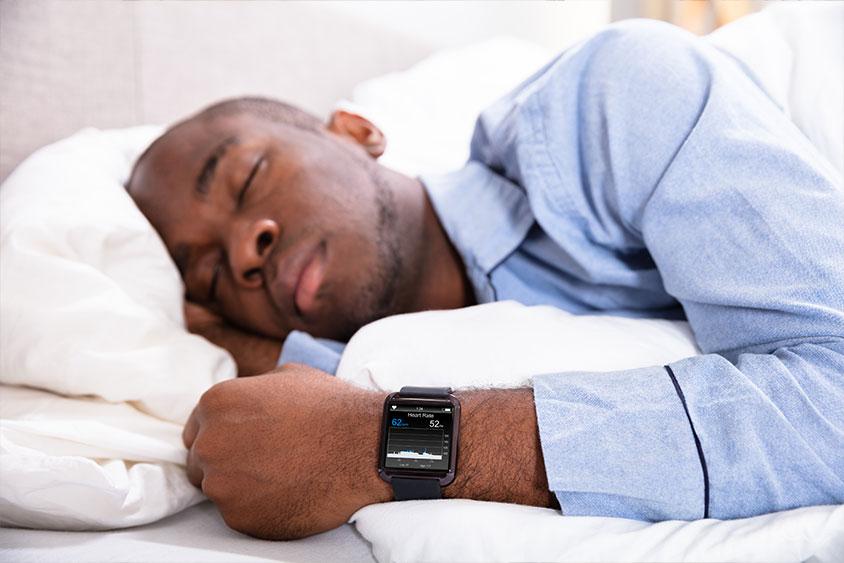
Resting heart rate (RHR) is a fundamental measure of cardiovascular health that provides valuable insights into your overall fitness level and well-being. Unlike your heart rate during exercise or physical activity, which can fluctuate significantly, your resting heart rate reflects the number of times your heart beats per minute while resting and relaxed. Let's explore resting heart rate, how it's measured, what factors influence it, and why it's an important metric for assessing cardiovascular fitness and overall health.
Why Trust Us?
ACTIVE.com's editorial team relies on the knowledge and experience of fitness and wellness experts, including competitive athletes, coaches, physical therapists, nutritionists, and certified trainers. This helps us ensure that the products we feature are of the highest standard. Collectively, the team has spent countless hours researching equipment, gear, and recovery tools to create the most accurate, authentic content for our readers. Customer satisfaction is also key to our review process, so we only feature highly rated products.
What Is Resting Heart Rate?
Resting heart rate refers to the number of heartbeats per minute (bpm) when your body is at rest, and you are not engaged in physical activity or experiencing stress or excitement. It is typically measured first thing in the morning while still lying in bed. A lower resting heart rate generally indicates better cardiovascular fitness and efficiency, while a higher resting heart rate may be a sign of poor cardiovascular health or underlying health conditions.
How to Measure Resting Heart Rate
There are several methods for measuring resting heart rate:
- Manual Pulse Check: Place your index and middle fingers on your wrist (radial artery) or neck (carotid artery) and count the number of beats you feel within a 60-second period. Alternatively, you can count the beats for 15 seconds and multiply by four to calculate beats per minute.
- Wearable Fitness Trackers: Many modern fitness trackers and smartwatches are equipped with heart rate monitors that can provide real-time heart rate data, including resting heart rate. Simply wear the device throughout the day and check your heart rate readings in the morning or whenever you are at rest.
- Mobile Apps: There are various mobile apps available for smartphones that can measure heart rate using the device's camera and flash. Simply place your finger over the camera lens, and the app will detect your pulse and calculate your heart rate.
Factors That Influence Resting Heart Rate
Several factors can influence resting heart rate, including:
- Age: Resting heart rate tends to decrease with age as the heart becomes more efficient at pumping blood.
- Fitness Level: Regular exercise and physical activity can lower resting heart rate by strengthening the heart muscle and improving cardiovascular efficiency.
- Genetics: Resting heart rate may be influenced by genetic factors, with some individuals naturally predisposed to lower or higher heart rates.
- Medications and Health Conditions: Certain medications, medical conditions (such as thyroid disorders or anemia), and lifestyle factors (such as smoking or caffeine intake) can affect resting heart rate.
Why Resting Heart Rate Matters
Resting heart rate is an essential indicator of cardiovascular health and overall fitness for several reasons:
- Cardiovascular Fitness: A lower resting heart rate generally indicates better cardiovascular fitness and a more efficient heart. Regular exercise and physical activity can lead to a lower resting heart rate over time.
- Risk of Heart Disease: Research has shown that individuals with a higher resting heart rate may have an increased risk of developing cardiovascular diseases, such as heart attack, stroke, and hypertension.
- Fitness Progress Tracking: Monitoring changes in resting heart rate over time can help track fitness progress and the effectiveness of exercise routines. A decreasing resting heart rate may indicate improved cardiovascular fitness, while an increasing resting heart rate may signal a need for adjustments to lifestyle or training habits.
In conclusion, resting heart rate is vital for assessing cardiovascular health and overall fitness. By understanding what resting heart rate is, how it's measured, what factors influence it, and why it matters, you can take proactive steps to optimize your heart health and well-being. Whether you're aiming to improve fitness, track progress, or monitor cardiovascular health, paying attention to your resting heart rate can provide valuable insights into your body's condition and help you make informed decisions about your health and lifestyle.
Check Out The Latest Running Shoe Deals From Amazozn
By clicking on the product links in this article, we may receive a commission fee at no cost to you, the reader. Sponsorships and affiliate commissions help support our research so we can help you find the best products. Read full affiliate disclosure here.
About the Author

Stephen is the editor-in-chief of ACTIVE.com. He has been involved in the fitness industry for over twelve years but has been running or playing sports for most of his life.
Get ACTIVE on the Go


Couch to 5K®
The best way to get new runners off the couch and across the finish line of their first 5K.
Available for iOS | Android







Discuss This Article